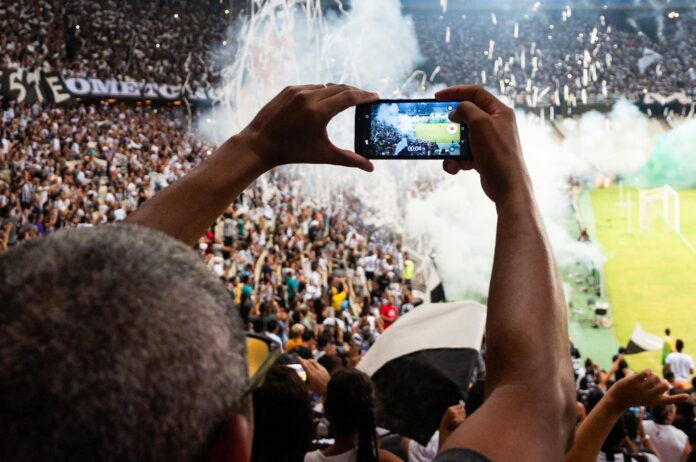When football is the topic of debate, Brazil is probably the first country to come to mind for fans all over the world. The nation of Pelé, Ronaldo, Romário, Neymar, Endrick, and many others is a true hub for talent generation. Brazilian players are scouted globally, and acquisitions directly from Brazilian clubs by the world’s biggest clubs are quite normal. This has helped create wealthy and well-known agents fluent in Portuguese.
The weak Brazilian currency and historical lack of professionalism also contributed to this trend—clubs often needed to sell young talented players. However, this is changing with the entry of foreign investors acquiring clubs, driven by new legal frameworks, turning them into robust enterprises with high management standards. This has positioned Brazil as a competitive market, capable of rivalling top European clubs (where average salaries for starting players in top divisions are around 600,000 euros net).
TV and broadcasting rights revenue, crucially shared equally among clubs, represents a significant portion. A short-term opportunity lies in discussions about a new league, akin to England’s 1990s model, which could substantially increase this value. Currently, sponsorship agreements are predominantly with betting companies, but increased professionalism is attracting traditional firms.
The Brazilian Serie A (“Brasileirão”) follows a format similar to leagues worldwide: 20 teams play home and away fixtures, with the bottom 4 teams relegated to Serie B. Notably, Brazil’s vast size means travel between cities can take up to 4 hours by plane, necessitating large squads to manage frequent injuries.
Brazil observes two transfer windows annually: the primary window opens in January and runs through March, while a smaller one spans July to August’s end. That always created problems for Brazilian clubs since the middle of the local season is where foreign markets are the most heated – and clubs usually lose key players in the middle of the national competitions.
For agents operating in Brazil, registration with the local federation (CBF) is mandatory but straightforward, unlike markets such as France where additional tests may be required. Companies in Brazil face an average tax rate of 20% on earnings, with agents retaining 80% of commission revenue as dividends.
Player contracts typically split compensation evenly: 50% as salary and 50% as image rights. Tax rates on salaries (around 30%) and image rights (20%) are comparatively lower than other markets. A recent law(14.597/2021) change allows signing bonuses to be paid similarly to image rights, benefiting both foreign players negotiating net amounts and clubs navigating lower tax brackets.
The quota for foreign players in Brazilian clubs is continually adjusted to accommodate the influx of South American talent. Currently, up to 9 foreign players can be selected for a match, prompting clubs to recruit more from the region due to competitive salaries and strong technical skills.
Looking ahead, foreign groups are increasingly viewing Brazil as a top investment destination. The market’s growth potential, which also enhances franchise valuations, is attracting significant attention. Moreover, with Multi-Club Organizations (MCOs) emerging worldwide, having a club in Brazil becomes an effective strategy for talent recruitment rather than direct acquisition.
For instance, consider the case of Vitor Roque and Athletico Paranaense: under national law, domestic release clauses are capped at 2,000 times the player’s base monthly wage. This set Roque’s release clause at 24 million reais (approximately 5 million dollars), paid to his former club, Cruzeiro. A year later, Barcelona acquired him for 45 million euros plus bonuses. Partnering with Brazilian clubs—or even acquiring them for MCOs—could significantly enhance European clubs’ value capture!

